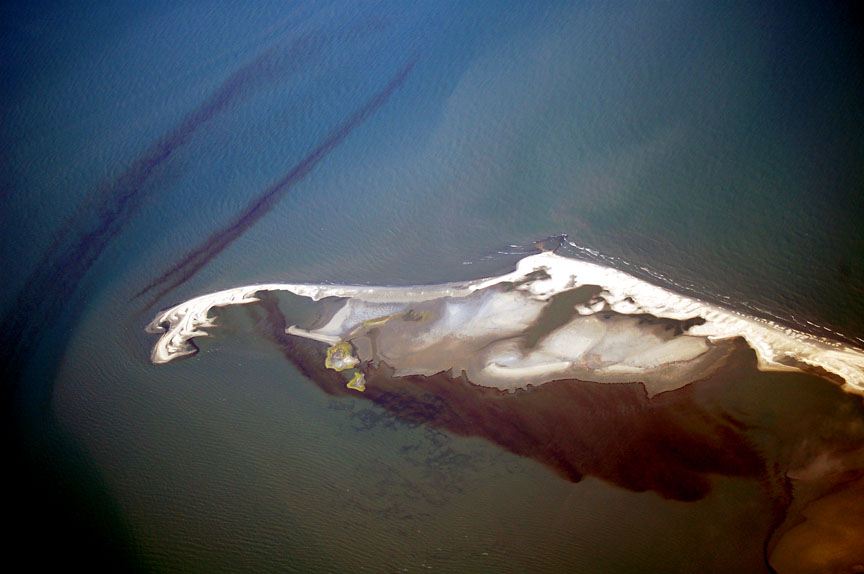
BP oil and chemicals make landfall during Gulf oil spill, May 8, 2010: Glynn Wilson
By Michele Harmon –
Ten years ago this month, our community experienced the worst environmental disaster in the history of our country. In fact, the spill was 30 percent larger than originally calculated, and deadlier.
Below the surface, “invisible oil” was hidden from view of satellites that were intended to capture the extent of the spill in the Gulf. The government misunderstood how oil flowed from Deepwater Horizon and underestimated the extent to which it killed and poisoned marine life.
The blowout from Deepwater Horizon lasted 87 days, killed 11 people, spilled more than 210 million gallons of oil.
It destroyed people’s livelihoods – my father, brothers and cousins all earned their living off the Gulf’s waters. At its peak, 88,522 square miles of sea were closed to fishing because of the spill. It also contaminated communities, destroyed businesses and cost tens of billions of dollars in cleanup costs.
The impacts to wildlife were severe. Through Nov. 1, 2010, wildlife responders had collected 8,183 birds, 1,144 sea turtles, and 109 marine mammals affected by the spill — alive or dead, visibly oiled or not. Thousands more died unseen.
Yet any lessons learned from the oil disaster have been lost on the Trump administration. The administration has revoked the protections put into placed under the Obama administration and instead opened nearly all of our coastal waters to fossil fuel companies – putting corporations and profits over public health and safety. It has also decided to rollback major offshore-drilling safety regulations that were put into place in response to the spill disaster.
It has also proposed regulations to cement into law a hotly-disputed legal opinion declaring that the Migratory Bird Treaty Act (MBTA) does not protect migratory birds from harms caused by industrial activities, dramatically undercutting the law’s ability to conserve birds.
The Deepwater Horizon oil spill disaster killed more than 1 million birds over four years following the blowout. BP paid $100 million in fines under the MBTA alone, money that has been used to restore wetlands along the Gulf Coast region and support migratory bird conservation. Under the Trump administration’s new interpretation, however, the government can no longer seek the same compensation to restore wildlife habitat for future devastating oil spills.
You don’t need to live on the Gulf coast to be alarmed about the state of wildlife in America. A comprehensive study recently found that bird populations in North America are undergoing massive declines – a stunning 3 billion birds have been lost from the continent since 1970 – and federal law is essential to conserving and recovering these populations.
Luckily, rolling back protections for our oceans has been unpopular and the pushback from members of Congress and from the courts has been severe. Let’s hope that the attempted rollback of bird protections meets the same fate.
We all know it is not a question of if a spill will occur, it is a question of when. The big question remains what the Trump administration plans to do to protect our wildlife, coasts and environment from the next big spill.
Reps. Alan Lowenthal (D-CA), Francis Rooney and a group of 17 additional bipartisan original co-sponsors introduced the Migratory Bird Protection Act (H.R. 5552) to reverse the administration’s reinterpretation of the MBTA and reaffirm the law’s intent to protect migratory birds from industrial activities. Instead of attacking our nation’s bedrock wildlife conservation laws, the Trump administration should be reaffirming and strengthening the nation’s commitment to protecting birds.
—
Michele Harmon is the co-founder and Director of Alabama Coast United and an advocate with Defenders of Wildlife.
Editor’s Note: We were there in 2010 covering the BP oil spill under our previous name, The Locust Fork News-Journal. We took thousands of photographs, wrote hundreds of stories, and produced a number of videos.
This video went viral.
Here are a few pictures.
More Pictures
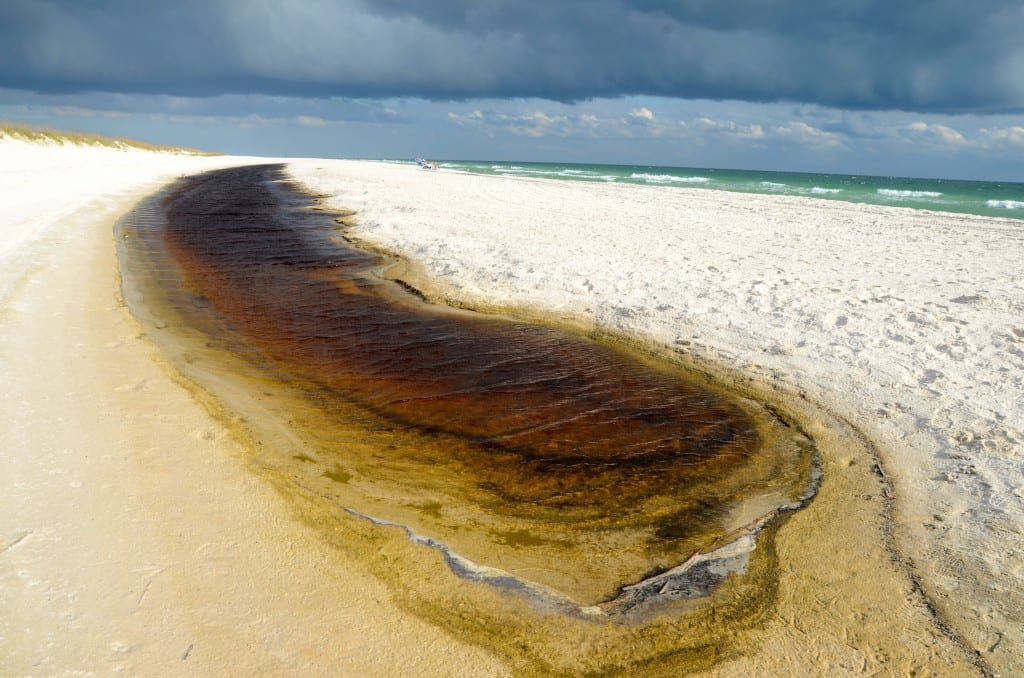
Left over oil and chemicals from the BP oil spill. See more images here. [Click on the image for a larger view]: Glynn Wilson
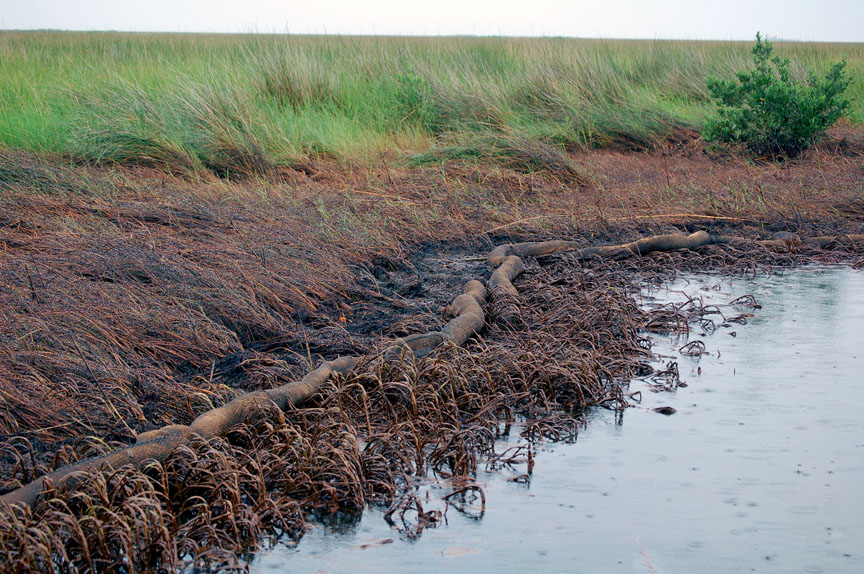
BP’s oil washed ashore and spoiled hundreds of acres of marsh from New Orleans to Florida: Glynn Wilson
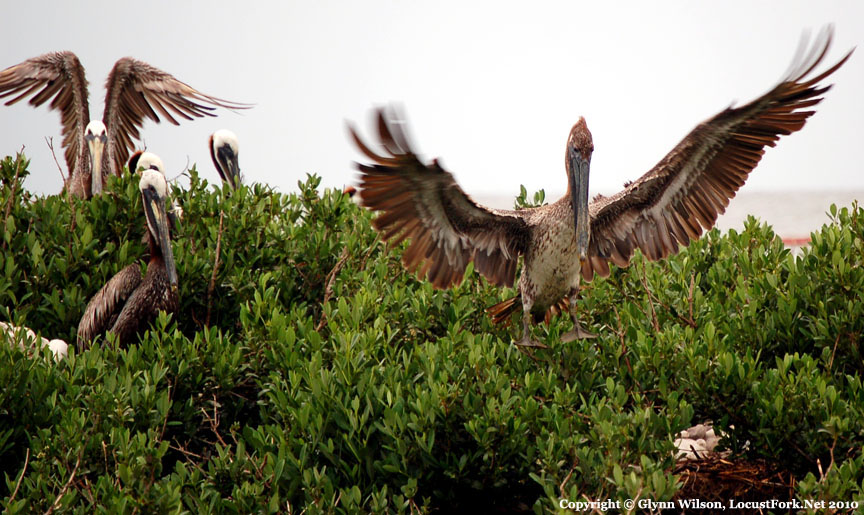
Brown pelicans with young and eggs on an island surrounded by BP oil in Barataria Bay Louisiana, June 2010: Glynn Wilson
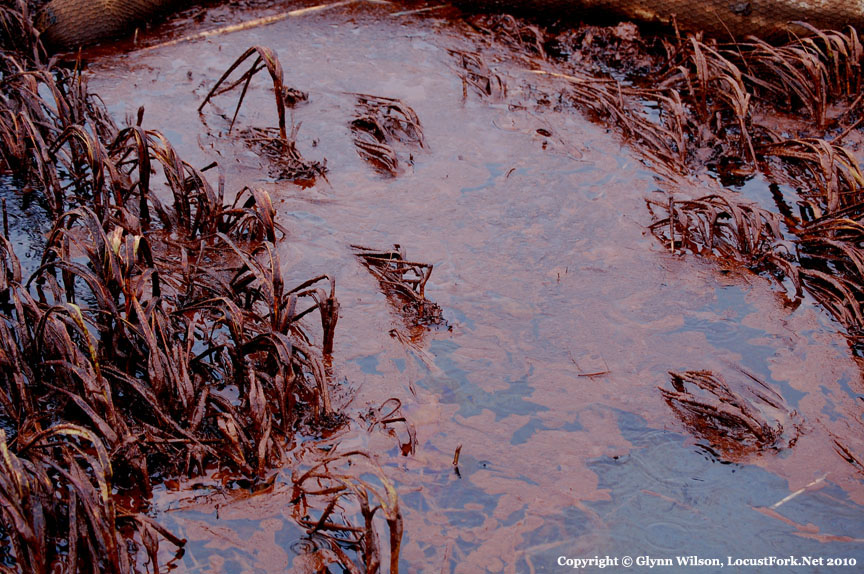
BP’s oil stains Louisiana waters, kills marshes and wildlife: Glynn Wilson

Left over oil and chemicals from the BP oil spill. See more images here. [Click on the image for a larger view]: Glynn Wilson













